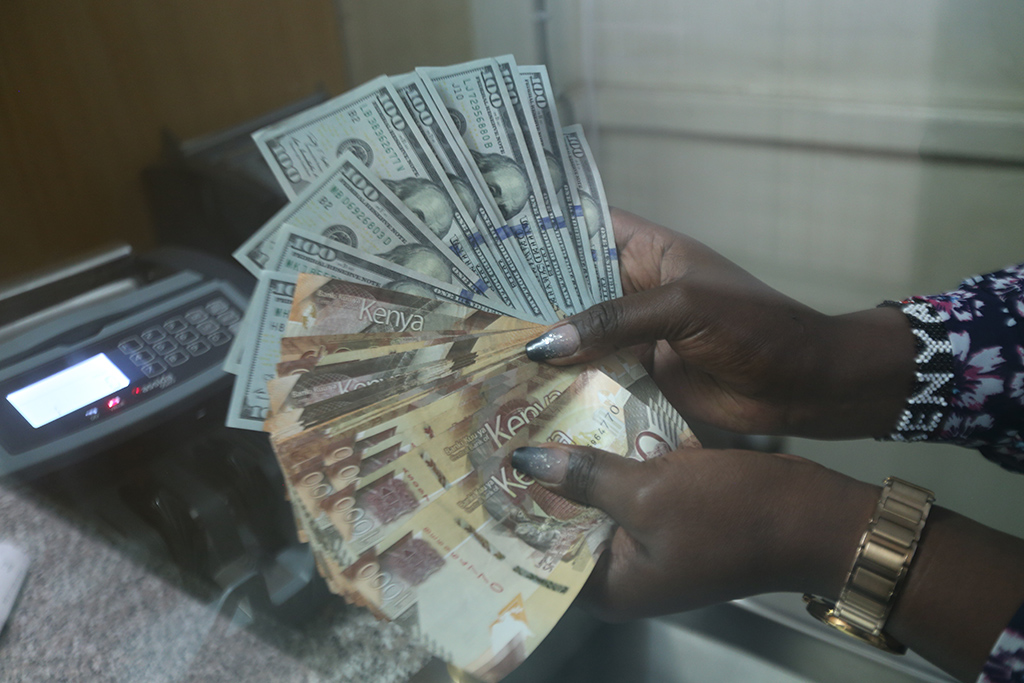After days of gaining value against the US dollar, experts warn that the Kenyan shilling may continue to experience a decline, pushing up the cost of basic goods and services.
A document prepared by the Parliamentary Budget Office (PBO) and published on Monday February 19, 2024, shows that local currency is likely to continue depreciating against the US dollar for much of 2024.
This depreciation in the value of the shilling, PBO points out, is likely to be informed by factors such as the ripple effect of high US interest rates, geopolitical tensions and the rising cost of imports, which will increase demand for dollars.
PBO says that the depreciation will cause the shilling to lose as much as 21% of its value against the US dollar, further increasing the cost of living for many in the country.
“Kenya is a net importer of goods, the key to which is fuel, food (including edible oils), and raw materials,” it says. “A weak shilling implies that these goods will be substantially costlier, and this cost will be passed on to the consumer, thereby increasing the cost of living and perpetuating the decline in household consumption.”
The Kenyan shilling last week significantly strengthened against major currencies, with most local banks buying the US dollar at Sh135.8 to sell at Sh140.8.
As of Thursday, February 15, 2024, Bank of Africa in its ‘daily exchange’ rates, bought US dollar at Sh148.10, and sold the same at Sh152.9. On the same day, the lender’s buying price of the British Pound Sterling (BPT) was at Sh182.81, sell at Sh195.83.
The government, through the National Treasury, attributed the gain to renewed investor confidence, spurred by the government’s proactive measures, notably the redemption of the Sh316 billion (2 billion) Eurobond due in June this year.
Treasury Principal Secretary, Chris Kiptoo added that foreign investments in the Central Bank of Kenya’s Sh70 billion infrastructure bond is another contributing factor to the shilling’s gain.
And in its report, PBO on Monday argued that the continued loss in the value of shilling is expected to adversely affect consumption and investment.
On the investment side, foreign investors’ flight due to the likelihood of reduced profits from the bourse is a significant risk, according to the document.
It argues that in 2023, the Nairobi Securities Exchange (NSE) experienced a decline of 27.5%, resulting in a decrease of Sh547 billion in paper wealth, as the prolonged bear run continued to impact investors’ equity portfolios.
“Market data reveal that the NSE concluded the final trading day of the year with a valuation of Sh1.439 trillion, down from Sh1.986 trillion at the end of 2022.
“During the same period, the Nairobi All Share Index (NASI), which reflects overall stock performance, also experienced a comparable decline. Additionally, NSE 20 and 25, tracking the top 20 and 25 listed firms, registered contractions of 10.4% and 24%, respectively,” reads the document.
It added that the erosion of investor confidence and reduced capital formation stemming from the struggling stock market collectively contribute to a challenging economic landscape for businesses across sectors.


